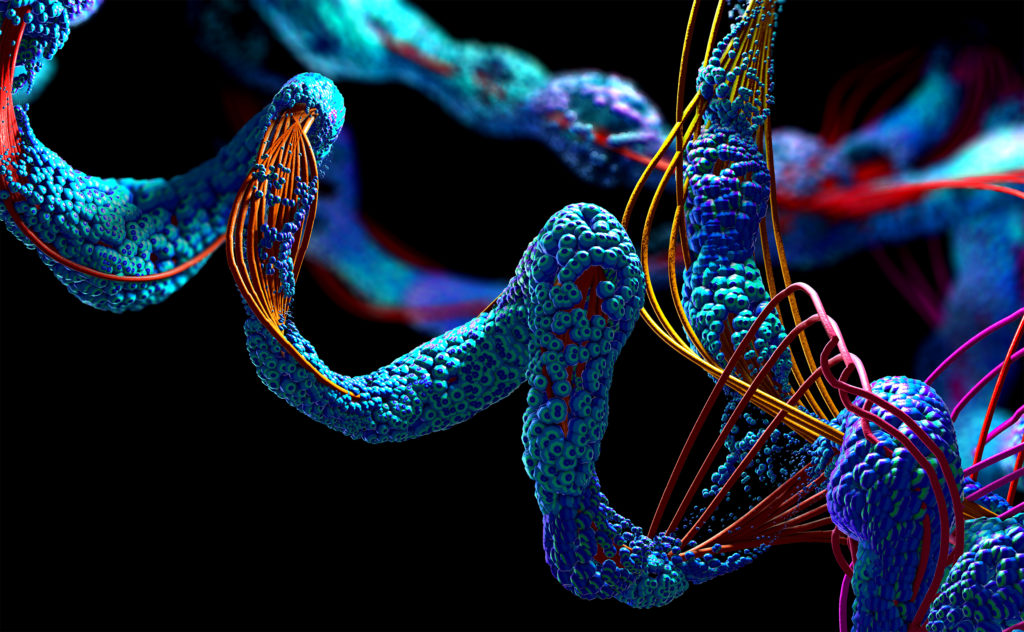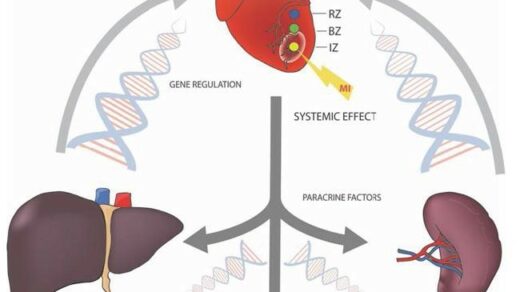Researchers used CRISPR-Cas9 and a number of other biological analyses to investigate the oncogenetic tendency of human LAT1.

Light chain proteins are produced by immune cells and link with heavy chain proteins to form antibodies. CD98 is a glycoprotein composed of SLC3A2 (heavy chain) and SLC7A5 (light chain), forming the L-type amino acid transporter 1 (LAT1). This protein was previously only thought to function as a cell-surface marker associated with lymphocyte activation. CD98 has since been further identified as a unique molecule expressed by numerous cancer cells.
“LAT1 transports large neutral amino acids, including leucine, which activates mTOR, and is highly expressed in human cancers.”
LAT1/SLC7A5 is the first identified CD98 light chain (CD98lc) disulfide linked to the CD98 heavy chain (CD98hc/SLC3A2). Research suggests that there are oncogenic molecular complexes between CD98lc and CD98hc. CD98’s oncogenicity was confirmed when mutated CD98hc did not bind with CD98lc. A previous study identified CD98hc-LAT1 as an oncogenic complex by targeted disruption of the chicken LAT1 gene.
“Many studies have reported anti-cancer effects due to the inhibition of LAT1 function [25, 44, 49]; however, the role of LAT1 overexpression in malignant transformation or carcinogenesis has not been clarified.”
Researchers from Japan’s Kindai University, Tohoku University, Tokyo University of Science, and Hyogo University of Health Sciences investigated the oncogenetic tendency of human LAT1 when overexpressed by retrovirus infection in mouse model NIH/3T3 cells. Their paper was chosen as the cover of Oncotarget’s Volume 12, Issue 13, and entitled, “Oncogenic transformation of NIH/3T3 cells by the overexpression of L-type amino acid transporter 1, a promising anti-cancer target.”
The Study
“In this study, we assessed the oncogenicity of LAT1 by the NIH/3T3 transformation system.”
The NIH/3T3 transformation system refers to a Swiss mouse embryonic fibroblast cell line and denotes the cell transfer and inoculation method used—3T3 stands for “3-day transfer, inoculum 3 x 10^5 cells.” These cells have been used in many studies and are relatively easy to culture.
“We established NIH/3T3 cell lines infected with a vacant pMYs-IRES-Puro retrovirus, or the same retrovirus containing cDNA encoding human (h) native (164C) LAT1 or mutant (164 S) LAT1, whose 164th cysteine is genetically converted to serine.”
To clarify the role of LAT1 in carcinogenesis, the researchers in this study conducted a number of biological analyses. The team analyzed the tumor formations of different phenotypes of NIH/3T3 cells overexpressing LAT1 in nude mice. They knocked-down CD98hc by producing CD98hc-knockout cells using CRISPR/Cas9-based CD98hc gene disruption with pX330 and pCAG-EGxxFP. (Click here for a brief overview of CRISPR-Cas9.)
The reactivity and production of mouse antibodies were tested in vitro and in vivo on tumor cells in a number of different cell lines. The team conducted reverse-transcription quantitative PCR, western blot analysis, immunoprecipitation, flow cytometry, cell growth and cell density analysis, anchorage-dependent and -independent growth in 3D culture, scatchard plot analysis, and statistical analysis.
Conclusion
“Anti-LAT1 monoclonal antibodies significantly inhibited in vitro cell proliferation and in vivo tumor growth of naLAT1/3T3 cells in nude mice, demonstrating LAT1 to be a promising anti-cancer target.”
In addition to many of their findings, their research suggests that LAT1 can be expressed at the cell surface without associating with CD98hc, despite previous studies that have claimed CD98hc is required for the trafficking of LAT1 to the cell surface.
“This may lead to the development of more powerful anti-LAT1 therapeutic antibodies.”
Click here to read the full paper, published by Oncotarget.
YOU MAY ALSO LIKE: Latest Oncotarget Videos Hosted on LabTube TV
—
Oncotarget is a unique platform designed to house scientific studies in a journal format that is available for anyone to read—without a paywall making access more difficult. This means information that has the potential to benefit our societies from the inside out can be shared with friends, neighbors, colleagues, and other researchers, far and wide.
For media inquiries, please contact media@impactjournals.com.



